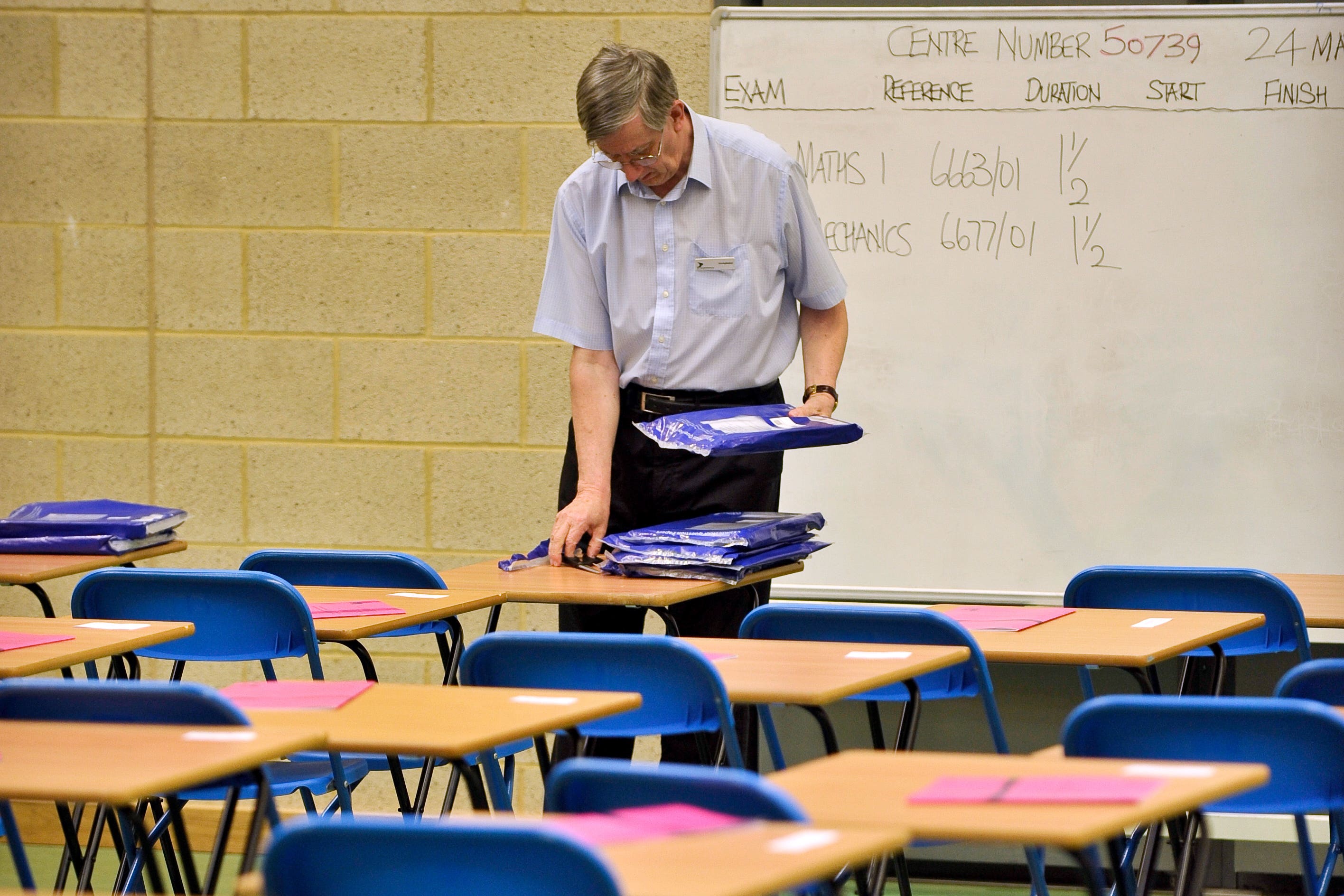Exam boards to grade French, German and computer science GCSEs ‘more generously’
The announcement from Ofqual comes as students across the country are preparing to receive their exam results next month.

Exam boards have been told to grade GCSEs in French, German and computer science more generously this summer.
England’s exams regulator, Ofqual, has ruled there should be adjustments to grading standards for the subjects, which will have “a small impact” on results.
Computer science GCSE is set to be graded less severely after Ofqual found grading standards in the subject were “more stringent” before Covid-19.
Exam boards will be required to award French and German GCSEs “more generously” for the second year to better align them with other subjects.
It comes amid concerns that the popularity of French and German at GCSE has dropped over the past 14 years.
The severe grading of modern languages at GCSE is a longstanding anomaly, and it will be good to see the impact of these adjustments when this year's GCSE results are announced in August
Ahead of pupils receiving their exam grades next month, Ofqual said: “As the changes are small, and only relate to three subjects, we still expect overall GCSE results to be similar to summer 2023.”
The exams regulator added that it expects this year’s GCSE and A-level results in England to be “broadly similar” to last year.
A-level and GCSE results were brought back to pre-pandemic levels in England last year.
It came after Covid-19 led to an increase in top grades in 2020 and 2021, with results based on teacher assessments instead of exams.
Ofqual research found that grading standards in GCSE computer science – which was first awarded in 2012 – “may have become slightly more stringent” between 2014 to 2019 due to changes to the qualification and the cohort.
The exams regulator said: “We are therefore requiring exam boards to reflect the research findings when setting grade boundaries in GCSE computer science this summer and award more generously at grades 9, 7 and 4.”
In England GCSEs are graded using a numerical system from 9 to 1 rather than from A* to G – with 9 being the highest grade.
A 4 is broadly equivalent to a C grade, and a 7 is broadly equivalent to an A.
In November 2019, Ofqual announced that grading standards in French and German GCSEs would be adjusted to better align with Spanish but the plans were delayed in the Covid-19 years.
Last summer, Ofqual told exam boards to award more generously at grades 9, 7 and 4 in GCSE French and German.
On Thursday, the exams regulator said it is now requiring exam boards to make a “further positive adjustment” in GCSE German (grades 9, 7 and 4), and GCSE French (grades 7 and 4).
The requirement for exam boards to make positive adjustments to grades awarded is good news for all those taking exams this summer and beyond
Languages and computer science are both included in the English Baccalaureate (EBacc) – a Government measure which aims to ensure pupils take English, maths, science, a humanities subject and a language at GCSE.
Julie McCulloch, director of policy at the Association of School and College Leaders (ASCL), said: “It’s vital that grading is fair and comparable and we welcome Ofqual’s announcement.
“Particularly welcome is the finalising of adjustments to grading in GCSE French and German, something that was originally announced back in 2019 but then interrupted by the pandemic.
“We will be able to see the precise impact of these adjustments when GCSE results are announced in August, but the requirement for exam boards to make positive adjustments to grades awarded is good news for all those taking exams this summer and beyond.”
She added that the ASCL will continue to argue for “greater adjustment” so GCSE grades in languages are comparable with grades in other EBacc subjects.
Ms McCulloch said: “Currently pupils are too often left incorrectly thinking that their ability in modern languages is not as high as in other EBacc subjects.
“In the meantime though, we hope that this change will provide encouragement to students and teachers of modern languages.”
Professor Charles Forsdick, lead fellow for languages at the British Academy, said: “It’s good news for those taking languages GCSEs this summer and beyond that Ofqual will require exam boards to make positive adjustments to the grades they award in French and German.
“This completes adjustments originally announced in 2019 and interrupted by the pandemic.
“The severe grading of modern languages at GCSE is a longstanding anomaly, and it will be good to see the impact of these adjustments when this year’s GCSE results are announced in August.”
Bookmark popover
Removed from bookmarks